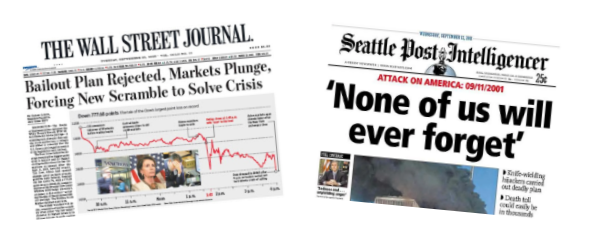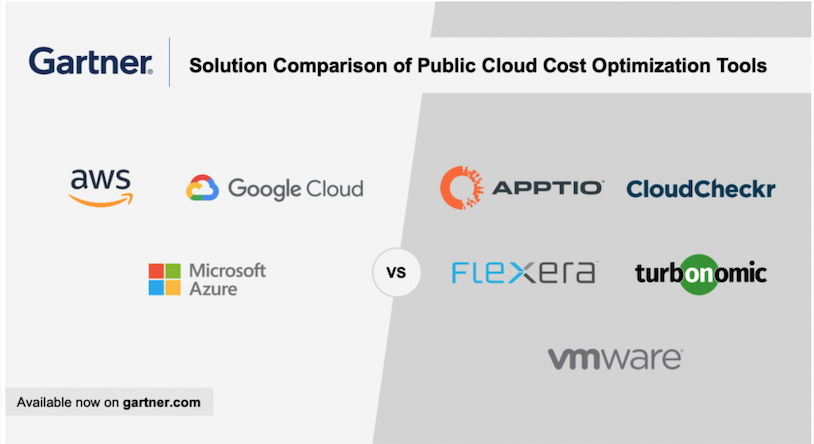Bringing the future forward
How crises can lead towards more open approaches
Black Swans, by definition, defy pattern recognition. The current Black Swan caused by COVID-19 is different in so many ways than prior crises.
First and foremost, we are at risk of our very lives and the lives of our loved ones and our teammates. When poor oversight, rampant greed, and politically inspired risky mortgage lending led to the 2008 crisis, the entire global economic system shuddered. However, for most, our health was only indirectly challenged.
 In this way, the current crisis is more similar to the 2001 crises, when institutions in the United States failed to protect us from an almost unimaginable evil. Suddenly every crowd could conceal a maniac bent on dispatching us as a part of a political and religious statement.
In this way, the current crisis is more similar to the 2001 crises, when institutions in the United States failed to protect us from an almost unimaginable evil. Suddenly every crowd could conceal a maniac bent on dispatching us as a part of a political and religious statement.
I was helping to lead the companies I had founded during both crises. I raised funding amidst each of them. Much like MayaData, the companies I was helping to lead at that time were supporting enterprise customers, and our software was used as a part of a move to the next stack.
In this brief blog, I’d like to surface a few lessons learned from the 2001 and 2008 crisis.
People first
It can be all too easy to hunker down, work more, talk more, act more - become a wartime CEO.
And - certainly - some of that is necessary. You need to be decisive. Be willing to take action when others are frozen in the headlights, looking left and right.
But more than ever, users, customers, partners, team members, and more want to connect. We are all isolated, after all. So leave that space in conversations - don’t always fill it; listen. And ask - how are their parents doing, what are they doing to adjust to remote work, what do they like most and least about your products, how else would they get the job done?
At MayaData, we have increased our cadence of all company meetings. These are our weekly conversations, rare chances for us all to connect live. And we have made it our goal to smother our customers - with well-engineered products of course, but also with relentless curiosity. How does Bloomberg use Kubernetes to keep up with the ever more dynamic world? We ask some flavor of that question many times a week to our friends. Similarly, the team I directly lead has extended its stand-ups, so we become closer and more confident in each other and ourselves.
We have so many brilliant and diverse individuals at MayaData and thousands more in the broader OpenEBS and Litmus and Kubernetes communities. When they are not cutting code, chatting with users, building websites, triaging stand-ups - MayaData’s engineers are helping orphanages, cheering for Norwich City (or remembering when they could), funding a temple, recovering from COVID-19, writing books, doing sous vide cooking, and building a system to auto-deploy a Kubernetes cluster inside NixOS and much much more. We’re using the pause and perspective of the crises to get to know each other better. To laugh with each other. Cake culture - low-calorie Zoom style.
And we are reminding each other that our first value is - people first. That means we are each responsible for trying not to get run down. And we are each responsible for taking the time to connect human to human to human.
Focus
At MayaData, we’ve boiled down what we are doing to two words: “data agility” and our performance to two metrics “TOFU - top of funnel users” and registrations.
While the breadth of our ambition is breathtaking - turning Kubernetes itself into a data plane in order to deliver data agility and freedom from cloud and vendor lock-in - day-to-day, we can boil it down to one mission and two metrics.
That intense focus is especially important during a crisis - in part because it leads to increased trust and efficiency. We all know why we are working so hard, and we all know how well we are doing.
I was not as focused back in 2008 or 2001. For too many reasons, we didn’t get back to our roots - the essence of who we were and why we were - fast enough. Lesson learned.
Focus.
Bring the future forward.
Lastly, crises are a chance to bring forward the future.
Walk out the door of your organization, turn around, and decide what you think it should be like when you rejoin that Zoom meeting. Instead of working to help it evolve in that direction - connect the teams together right now - get the work started today.
Never waste a crisis.
AND - here’s the thing that makes me hopeful like the first flowers in February. Your best customers, users, and partners are going to use the crises in the same way. They too will re-examine where they spend their money and time.
As an example, when I was working with IP voice and video in 2000, it was seen as something that would happen someday soon - but not quite yet. When NYC was attacked on 9/11, suddenly, those resilience benefits determined which companies were able to recover and which followed their legacy vendors into oblivion. Your best customers are even now looking at their enterprise with new eyes - and if you can help them leap ahead, they’ll take you with them.
Back in 2007, vendor lock-in was annoying. It felt wrong somehow that a traditional vendor would increase their prices for renewal support - after all, the underlying hardware had by that time depreciated massively, it was already three years old. But … that’s how the storage industry and much of infrastructure worked. And then the crises hit, and suddenly the rapacious business models of legacy vendors provided clear ROIs for enterprises that were willing to invest in order to stop the spending. A whole new set of technologies, including the cloud, emerged.
They will reap what they sow.
These days we see something similar happening. Enterprises are bringing the future forward - adopting approaches that offer greater independence, resilience, and cost savings. Last month was by far a record month for new users of OpenEBS, for example, and we hear of a similar updraft impacting other CNCF projects and related companies.
Here’s a tell. If an industry has emerged to help enterprises figure out what they are going to owe you - then especially in times of crisis, enterprises are going to invest in ways to free themselves from you. And if Gartner has built a practice on helping enterprises to pick software that itself helps enterprises pick how and whether to use your services - then that investment is already underway.

Kubernetes is a part of the generations-old movement towards openness, choice, and a focus on value delivered as opposed to value captured.
Conclusion
In the end - it will all work out.
Bet on the people. Stay true and focused. Bet on the future.
If you know your foundation isn’t sound - if you support one of those firms that hatch with every updraft that exist mainly to transfer value from a community and a set of desperate customers to its founders and investors - then my suggestion is to look for a firm with a more solid foundation. And I mean foundation in part literally - find companies to partner with, and work for, that have made a statement of their long term intentions by putting their core technology into one of the great foundations like the Cloud Native Computing Foundation.
And I also mean foundation in terms of the values of the firm and the people that built the firm. Why are they doing what they are doing?
Give it some thought. And if you’d rather be supporting a firm that is a part of a broader movement towards openness, and agility, and collaboration - then get in touch with us. We’re here to listen and to work together to bring the future-forward.
In any case - take care. Thank you for reading, and please keep in touch.






Game changer in Container and Storage Paradigm- MayaData gets acquired by DataCore Software
Don Williams
Don Williams
Managing Ephemeral Storage on Kubernetes with OpenEBS
Kiran Mova
Kiran Mova
Understanding Persistent Volumes and PVCs in Kubernetes & OpenEBS
Murat Karslioglu
Murat Karslioglu